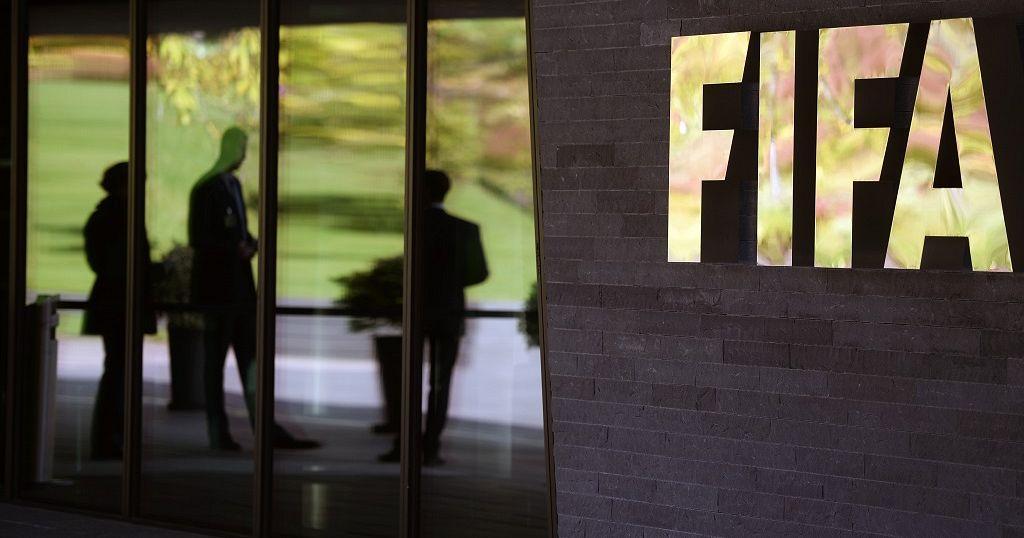Africa-Press – Mauritius. Global players’ union FIFPro teamed up with Europe’s domestic leagues to file a formal complaint against FIFA at the European Commission in Brussels on Monday, as the struggle to control football’s calendar intensified.
The boards of FIFPro and European Leagues, the organisation representing clubs in over 30 countries across Europe, agreed to take legal action in July, so the move cannot have come as a complete surprise to world football’s governing body. But this is still an unprecedented move and is further proof of just how vulnerable FIFA’s position as the game’s dominant voice has become.
At a media conference in the Belgian capital, leaders from the players’ unions in France, Italy and Norway, sat alongside senior representatives from the Belgian, English and Spanish leagues to explain that they were not trying to dethrone FIFA or seek financial damages: all they want, they said, is meaningful consultation on the calendar and all other issues that impact them.
“FIFA refuses to listen and engage with the players, the main labour resource of our industry, who are there on the pitch, creating a powerhouse of European and global entertainment culture, and pushing their bodies to the limit,” said FIFPro Europe president David Terrier.
“But we have listened to our players, have received the same messages for a long period of time, that they are playing too much and do not have enough time to recover. Ahead of the worst season ever for workload, many have also decided to talk in public with the same message: enough is enough.”
La Liga president Javier Tebas, a longstanding critic of FIFA, agreed, saying the unions and leagues are “clearly aligned in protecting national competitions and their players”.
“By introducing new formats and expanding competitions unilaterally, FIFA is acting solely in its own interest, without considering the resulting damage to the entire football ecosystem.”
Issues have been raised over the new Club World Cup
Confirmation of this challenge comes after FIFA’s attempt to cap how much commission players’ agents can charge ran into legal difficulties last year and the European Court of Justice placed limits on international federations’ ability to block new entrants to the market.
There was a further legal setback for FIFA last week when some of its rules on the international transfer system were declared non-compliant with European Union competition law after a nine-year legal battle brought by former player Lassana Diarra.
FIFA believes it can fix all the issues raised in those cases and on Monday, at the same time FIFPro and European Leagues were delivering their complaint, it announced that it was opening “global dialogue” on its transfer rules following the Diarra ruling. But it has never faced such a broad coalition of critics as it does in the row over the international match calendar.
The players’ unions and leagues were already upset with FIFA when it unilaterally decided to expand the men’s World Cup from 32 to 48 teams, starting with the 2026 tournament, but the spark that really lit the powder keg was FIFA’s creation of a 32-team Club World Cup.
With the first edition of the new tournament taking place in the United States between June 15 and July 13, many of the game’s biggest stars are looking at another extended season, with more games than ever and almost no time off before the 2025-26 season, which finishes with the expanded World Cup.
This is why players including Liverpool goalkeeper Alisson, Manchester City duo Kevin De Bruyne and Rodri, and Real Madrid forward Kylian Mbappe have all recently complained about tiredness and the increased risk of injury. The fact that all four have either been injured or missed games to manage their workload has only underlined the significance of their warnings.
FIFA has not yet responded to the formal complaint to the European Commission but has repeatedly downplayed the impact of its new and expanded tournaments on player workload, pointing out that it is only responsible for a small fraction of the overall number of games played every season. It has also said that it is the only body in football that redistributes the money it earns to help the game’s global growth.
For More News And Analysis About Mauritius Follow Africa-Press







